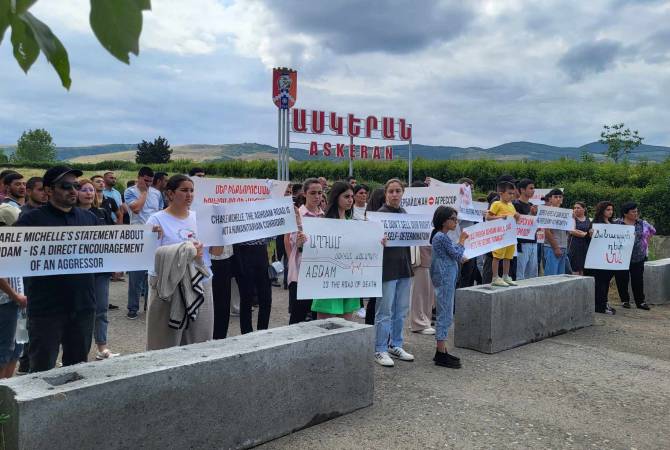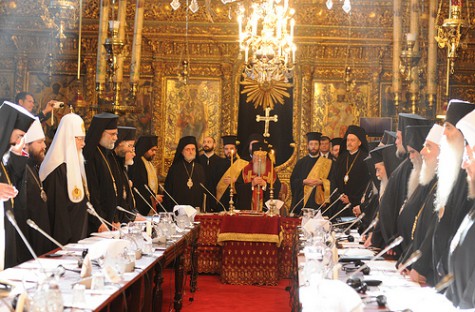Although Turkey-France relations have occasionally normal periods -albeit short-lived- for approximately ten years, in essence they are in a permanent state of crisis. There are two main reasons for this situation. The first and most important is France insisting that Turkey cannot become a full member of the EU for not being a “European” country and openly displaying its opposition by preventing the negotiation of some “chapters” of EU membership negotiations. From this point of view, there is no difference between France and Southern Cyprus. Despite opposing France’s approach, Turkey has never reflected its opposition on relations in non-political areas with that country and this has given France the chance to pursue its objections to Turkey’s membership to the EU without much discomfort. On the other hand, numerous problems existing within the European Union have made the Union, for the time being not very appealing for Turkey. The second issue has to do with France’s support for the Armenian genocide allegations. This support resulted in French recognition of the Armenian genocide through a law adopted in 2001. Turkey’s reaction to this law has been rather harsh in the emotional sense. However, since no sanctions have been enforced against France, relations between the two countries have returned to its normal course after a while and in fact, even somewhat have improved. Adoption of this law despite Turkey’s objections constituted an example for some other member countries of the European Union. As a matter of fact, adoption of resolutions which recognize the genocide allegations by the parliaments of Holland (2004), Slovakia (2004), Poland (2004), Lithuania (2005) and Germany (2005) followed the French case and encouraged by the ineffectiveness of Turkey’s reactions. The situation is the same for the Parliament of the non-EU member Switzerland adopting a similar resolution (2003). After the adaption of 2001 law, the French Armenians began to demand new legislation for the punishment of the denial of the genocide allegations. After some hesitation, the French National Assembly has adopted a draft law in 2006 regarding this issue. The French Government’s clear opposition to this bill has prevented relations between the two countries to be negatively affected by this event. For this bill to become a law, it had to be adopted by the French Senate. However, the Senate has not taken the bill to its agenda for about five years. The main reason for this position was not caused by the objections of Turkey, but judging historical events by legal means and punishing individuals for that reason were severely criticized by intellectuals and historians in France. Last May, the bill has come to the Senate upon the pressures of the Armenians, but has been found contrary to the French Constitution. Thus the draft law has fallen off the agenda once and for all. It could be understood that President Sarkozy played a determining role in the rejection of the bill by the Senate. It seems that the French President realized the fact that French opposition to Turkey’s EU membership has already created enough problems in relations with Turkey, that’s why he considered it necessary to eliminate the second problem, i.e. the draft law about the punishment of the Armenian genocide allegations, and in this regard used his influence on the senators of the UMP Party who previously declared the draft unconstitutional. However, a single event has caused President Sarkozy to change his stance approximately five months later. We will continue tomorrow.
© 2009-2025 Center for Eurasian Studies (AVİM) All Rights Reserved
ARMENIAN GENOCIDE FILMS FAIL TO WIN ACCLAIM
THE FAIRYTALES OF THE DASHNAK PARTY
 TENSION OVER THE LACHIN CORRIDOR BETWEEN AZERBAIJAN AND ARMENIA
TENSION OVER THE LACHIN CORRIDOR BETWEEN AZERBAIJAN AND ARMENIA
 ORTHODOX COUNCIL TO MEET AFTER 1200 YEARS
ORTHODOX COUNCIL TO MEET AFTER 1200 YEARS
 25TH ANNIVERSARY SUMMIT OF THE BLACK SEA ECONOMIC COOPERATION
25TH ANNIVERSARY SUMMIT OF THE BLACK SEA ECONOMIC COOPERATION
AVİM HELD A MEETING ENTITLED “TURKISH-ARMENIAN QUESTION: IN THE LIGHT OF THE HEARING OF PERINÇEK v. SWITZERLAND CASE ON JANUARY 28TH”




























